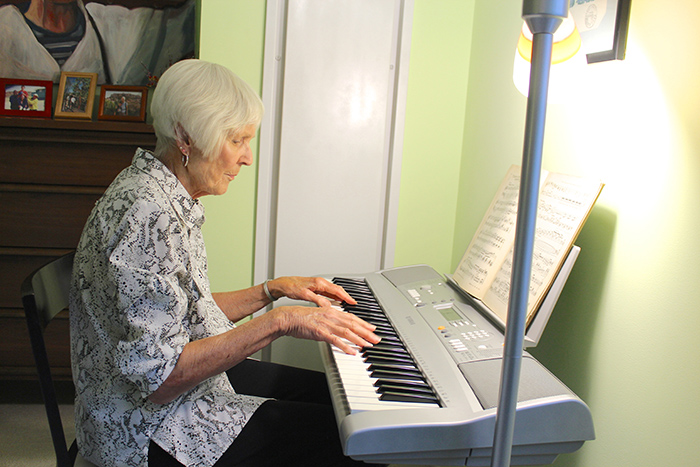Occupations & everyday activities
Occupational therapy practitioners are experts at helping people perform the occupations they need and want to do every day. Occupations and activities are essential components of occupational therapy interventions. Performance and engagement during occupations and activities are also important outcomes of occupational therapy intervention.

Occupations
Occupations are the activities that people do every day to give their life meaning and purpose. Occupations can be done alone or with family members and friends. Occupations can be done at home, at work or school, and in the community.
The client's context, performance patterns, performance skills, and client factors influence how they engage in occupations. Occupations help to shape clients' identities and influence their overall health and wellbeing. Occupational therapy intervention plans incorporate occupations to address participation and engagement and to further the development of performance skills and performance patterns.
The broad range of occupations is categorized in the Occupational Therapy Practice Framework (OTPF-4) as activities of daily living, instrumental activities of daily living, health management, rest and sleep, education, work, play, leisure, and social participation.
Health management
A major change to the OTPF-4 was the addition of health management as its own occupation category.
Occupational therapy practitioners address health management to help clients with chronic conditions maintain and improve performance in other occupations. Successful health management is important for overall health and wellbeing. If a client is unable to manage a chronic condition, performance and participation in work, leisure, and social participation might be impaired.
Occupational therapy practitioners address different aspects of health management such as:
- Symptom and condition management
- Medication management
- Social and emotional health promotion and maintenance
- Communication with the healthcare system
- Personal device management
- Nutrition, and
- Physical activity management
Activities
Activities are the actions people perform on daily basis. They differ from occupations because activities do not usually hold a great deal of personal meaning for clients. For example, a person may put on their socks every day, but this activity may not hold a great deal of personal meaning or be central to their identity.
Occupational therapy practitioners design intervention plans that include activities in order to enhance engagement in meaningful occupations. Activities are intentionally selected by the occupational therapy practitioner to facilitate the development of the client's performance skills and performance patterns.
Reference
American Occupational Therapy Association. (2020). Occupational therapy practice framework: Domain and process (4th ed.). American Journal of Occupational Therapy, 74(Suppl. 2), 7412410010. https://doi.org/10.5014/ajot.2020.74S2001